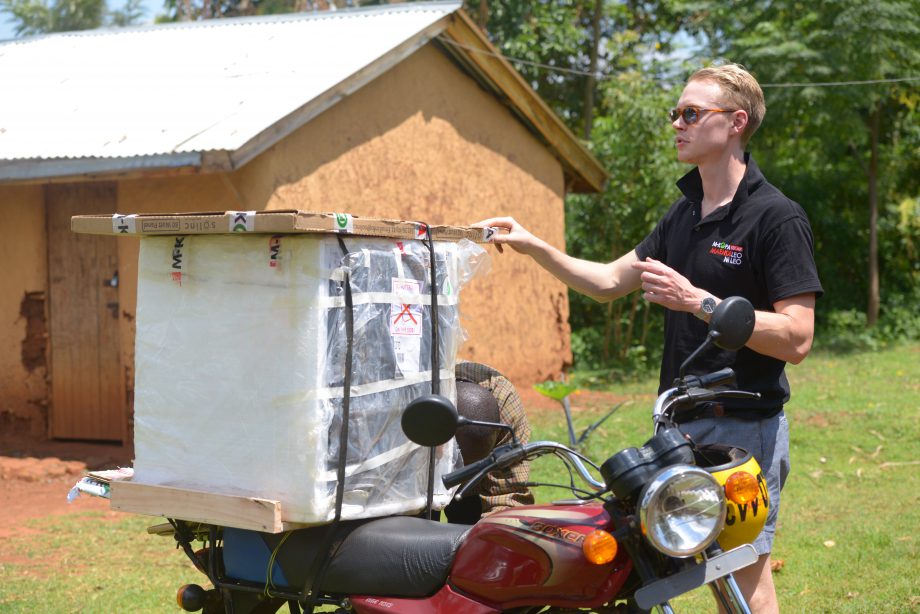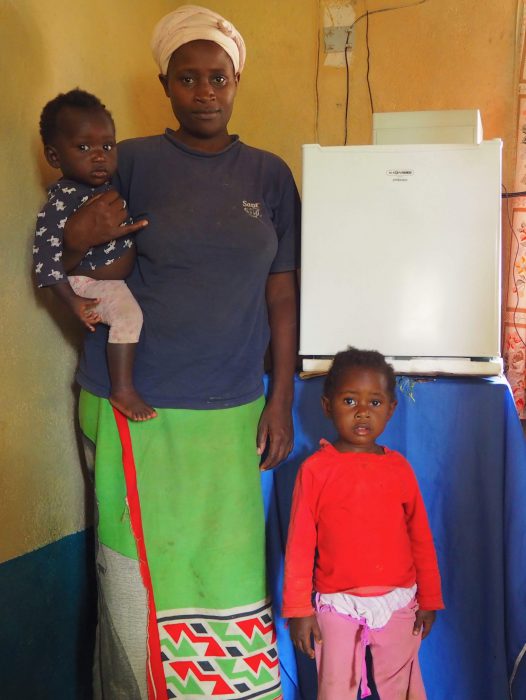
On a mission to bring a solar fridge to market
by Michael Emmerson – LGT Impact Fellow 2017
Frederic Tudor was an American merchant in the 1800’s to whom we all owe a debt. The Ice King of Boston, Mr Tudor was a businessman with a goal, bringing fresh product and cool drinks to those in need in the sweltering climes of the Caribbean and the southern parts of America. Enduring technical problems – how to stop ice melting in the cargo of a ship? – and cultural barriers, he persevered, eventually realising success before passing in 1864. From this vision would come the cold chain as we know it – fresh produce, stable medicine, and broad industrialisation of Mid West farming with the introduction of means of transporting meat whilst fresh.
Whilst interesting history, how is this relevant in 2018? We have put man on the moon and understand our own DNA. Yet, underpinned by two fundamental blockers – a lack of electricity and lack of finance to buy appliances – the same cold chain to promote child health, boost economic activity and improve domestic practices is still entirely lacking in large parts of the world. A solution is now in sight, however. Spawned 5 years ago with the intent of displacing kerosene as a lighting fuel, the solar home system industry provides a scalable solution to both of these blockers.
In April 2017, I begun my fellowship with M-KOPA Labs, based in Nairobi, to project manage an initiative supported by the Shell Foundation to bring to market a solar fridge.

Albeit from a radically different technology basis, the same problems as faced by Mr Tudor remain for M-KOPA in East Africa today.
Technical issues: Off-grid solar is expensive, and a fridge potentially power hungry. How can the price to the customer – financed over 3 years, but with corresponding increase in total cost – be made affordable? Can a fridge be robust enough to survive the Last Mile?
Customer issues: Whilst general enthusiasm for refrigerated produce exists, it is not a universal. Refrigerated meat can be perceived as a way of hiding its lack of freshness; cold drinks can be perceived to give children a cold; customers in cooler parts of Kenya do not perceive a need to store food.

During my fellowship, an enormous amount of ground has been covered. A series of technical pilots have proved the technology and provided a first look at the benefits to be realised in rural Kenyan households. Customers report real cash savings as well as the savings of many hours otherwise spent travelling to market each day. Our commercial pilot – the first time a Pay As You Go fridge has been sold in Kenya – shows support for the product although there remains work to be done getting the price as low as possible.
My fellowship experience in managing this work has been amazing. Initially thrown in at the deep end as the in country manager, I ended being the sole project manager for the entire $1m+ initiative having taken on product development responsibilities, global sourcing, in country research and pilot management and more besides. Beyond the professional experience, Nairobi proved an inspiring city in which to live and an ideal base from which to explore the surrounding region.
Meaningful work comes from having a meaningful problem to solve, and I can think of few more important problems than furthering access to power and finance in sub Saharan Africa. The potential network effects of this initiative are limitless – huge amounts of food is wasted in the value chain for vegetables, milk, meat, all of which is lost income and economic activity.
M-KOPA will continue bringing the fridge to market and driving the price down. Hopefully this effort will be taken up by the industry as a whole as a natural step up the energy ladder. Frederic Tudor was quoted as saying “A man who has drank his drinks cold at the same expense for one week can never be presented with them warm again”. Let us hope this remains true.
